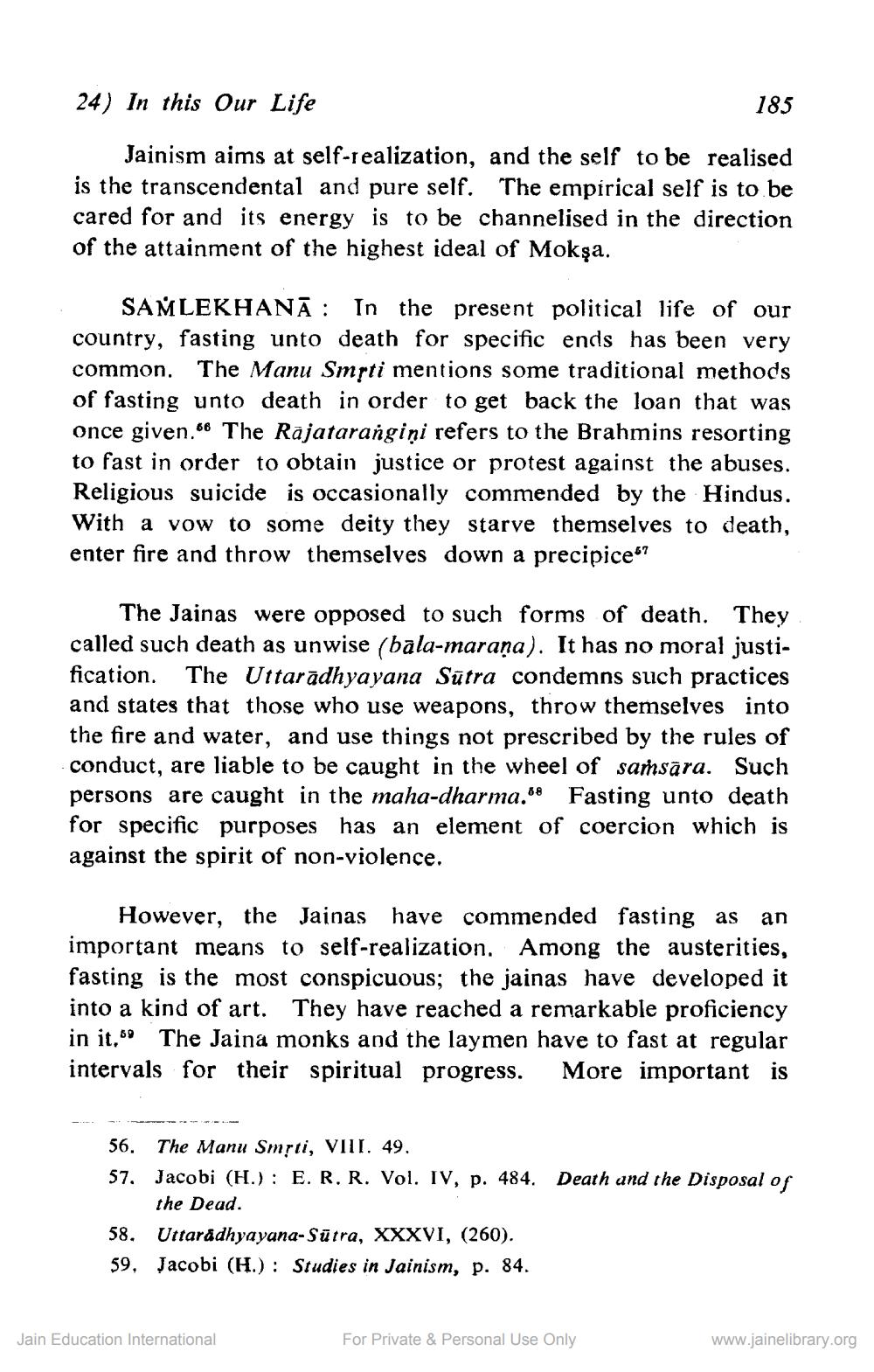________________
24) In this Our Life
185 Jainism aims at self-realization, and the self to be realised is the transcendental and pure self. The empirical self is to be cared for and its energy is to be channelised in the direction of the attainment of the highest ideal of Mokşa.
SALEKHANĀ: In the present political life of our country, fasting unto death for specific ends has been very common. The Manu Smsti mentions some traditional methods of fasting unto death in order to get back the loan that was once given.66 The Rajatarangini refers to the Brahmins resorting to fast in order to obtain justice or protest against the abuses. Religious suicide is occasionally commended by the Hindus. With a vow to some deity they starve themselves to death, enter fire and throw themselves down a precipice67
The Jainas were opposed to such forms of death. They called such death as unwise (bala-maraña). It has no moral justification. The Uttarādhyayana Sūtra condemns such practices and states that those who use weapons, throw themselves into the fire and water, and use things not prescribed by the rules of conduct, are liable to be caught in the wheel of samsara. Such persons are caught in the maha-dharma.68 Fasting unto death for specific purposes has an element of coercion which is against the spirit of non-violence.
However, the Jainas have commended fasting as an important means to self-realization. Among the austerities, fasting is the most conspicuous; the jainas have developed it into a kind of art. They have reached a remarkable proficiency in it,59 The Jaina monks and the laymen have to fast at regular intervals for their spiritual progress. More important is
56. The Manu Smộti, VIII. 49. 57. Jacobi (H.): E. R. R. Vol. IV, p. 484. Death and the Disposal of
the Dead. 58. Uttaradhyayana-Sūtra, XXXVI, (260). 59, Jacobi (H.): Studies in Jainism, p. 84.
Jain Education International
For Private & Personal Use Only
www.jainelibrary.org




